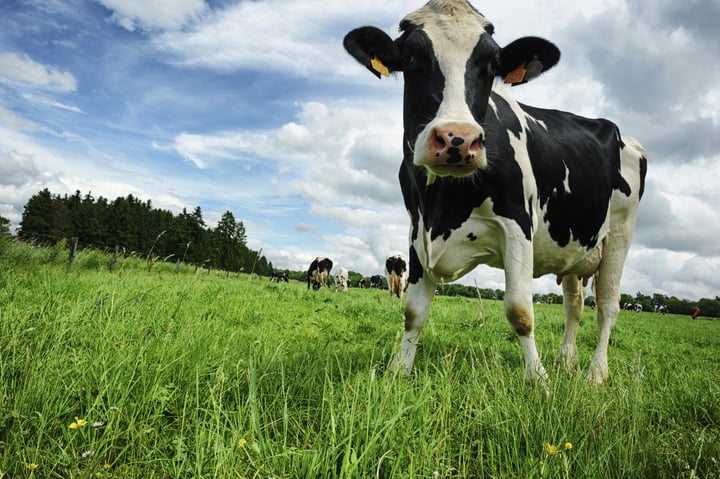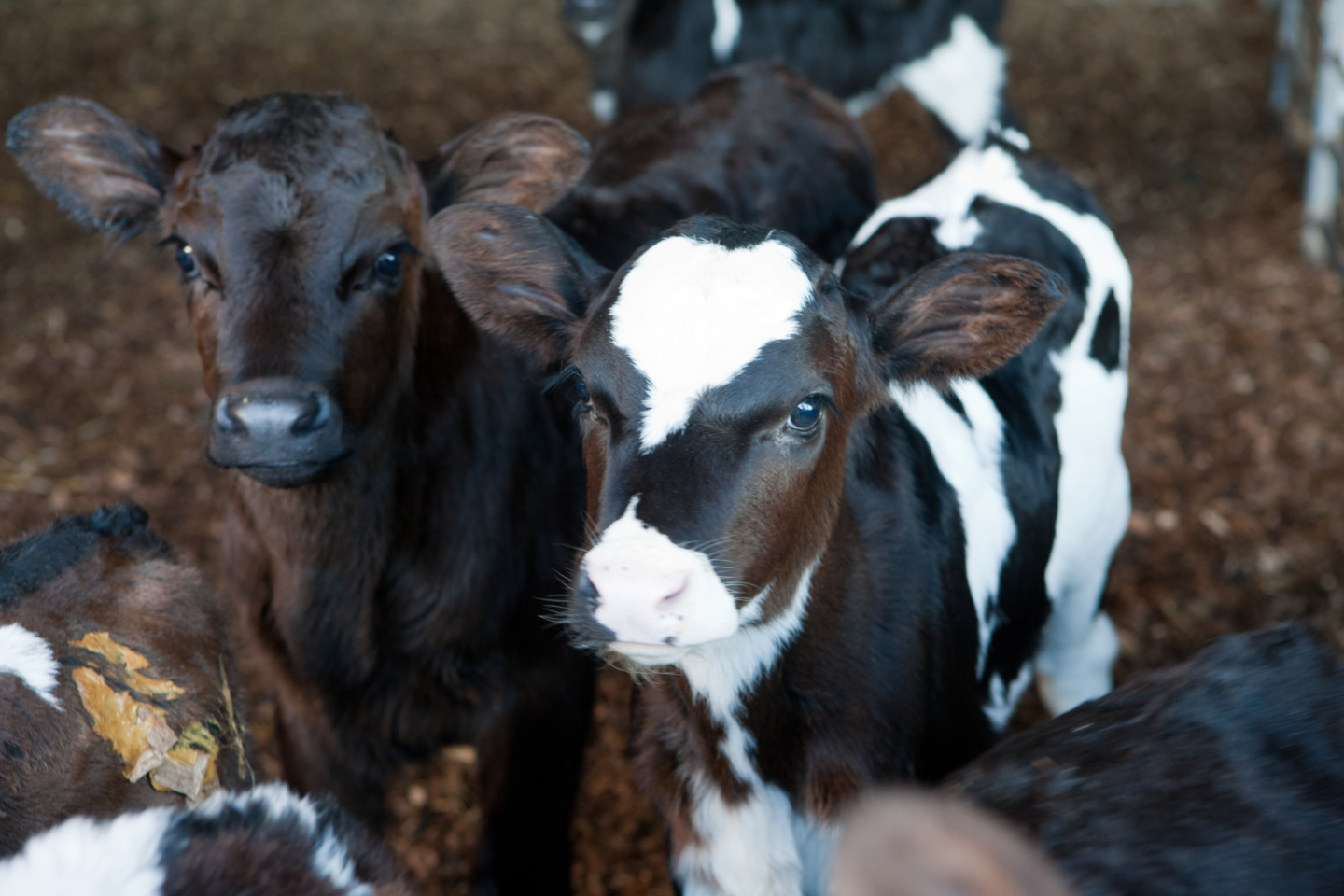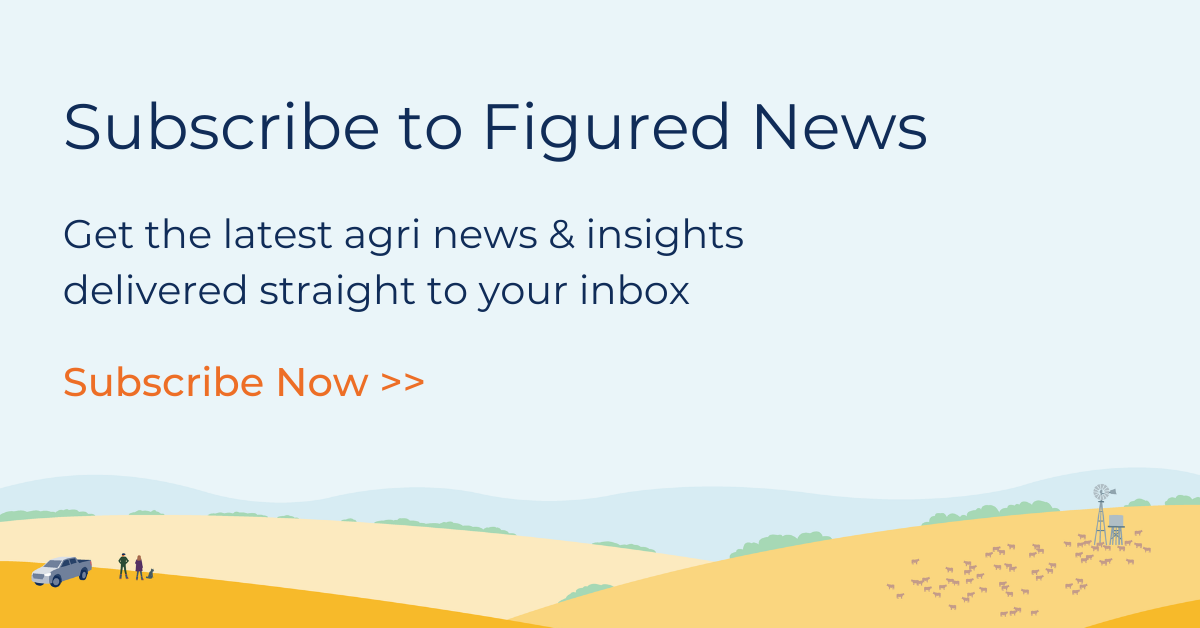By Paddy Terry, Partner Success Manager
Oscar van Der Spruit is one of Figured UK’s early users, and as well as running his own business, he also works alongside his son running a Dairy farm in the west of Scotland. We recently sat down for a chat with Oscar to discuss Covid-19's impact on agriculture, the importance of planning, and agritech adoption.
What are your thoughts on how the virus will affect agriculture?
“Different fields within farming - I cannot speak for beef or arable, and as a relatively new dairy farmer I don't possess the background of other other farmers. Thats both a challenge and its a positive - we don't approach farming in the standard way.
From my background, I'm used to having automation systems in place to give me the right information to make the decisions. My son is the farmer, he's the expert on cattle and grazing and all the things that you are required to know as a farmer, and I’m challenging him in this to think about what options we have to optimise our process of administration and management information, and that's actually improving the way we are going.
I think, whether its in Coronavirus times or just in general, I think that as a entrepreneur, or farming, or whatever it is you do, you need to know where you are standing - historically, farmers have always had their figures provided to them retrospectively, so they don't really know where they’re standing.
We try to keep this as accurately as possible, keep the planning grid up to date, do all our cashflow forecasting - in the beginning I was doing all this in excel. So this sort of thing [automation] is important, and there a lot of ways that this is going to help transparency in the business, but also doing this in a lot less time. So I browsed the web looking for different solutions for doing this automation, and there aren't many out there."
Agriculture has certainly lagged a bit there, but recently there has been a lot more investment in agritech, and at the very least the ideas/concepts of these solutions are taking shape…
“I think that farmers spend a lot of time on other things, like the specs of the machines they are using and everything they work with on a day-to-day level… but there are too many that see automation as non-essential or not core to their day-to-day operations. So I think soon they will see that there are actually tools that make things a lot easier, and as long as you keep it up to date, it gives you the relevant information - which might lead to some positive change.
So I suppose I think, whether its this crisis or not, in my own business I’ve had other crisi, the financial crisis, 9/11, the crisis in the 90’s - one thing about being in a crisis is, you can't steer and you’re going straight into the rocks - and if you don't have the right tools or a compass, then you don't know where you’re going and you will run a-ground”
What are you doing currently to prepare for this virus and situations like this?
"Overall what we are doing is giving ourselves more tools to react. As an example, in my business which is electronic wholesales, I have lost 75% of my turnover due to this, its a disaster. So one of the benefits for being in that trade is I can grow very fast, but I can also fall just as quickly.
Farming, in general, has much slower upward and downward curves, for example on a dairy farm you might have a great year when milk price is up 2p a litre, and we try to push out 2.5 million litres of milk - that's great, we make an extra £50k of sales. On the other side of that, if the milk price is bad you might lose 2p a litre, so you’re losing £50k of sales.
Then you need to be able to change your on-farm choices to compensate for that. It’s not big peaks and troughs - yes it's annoying but it doesn’t have the extremes, and when it doesn't have the extremes, the devil is in the detail. That's where farmers should realise that having the detailed information makes the difference one milk price is down but we know where we can shave some money or where we are struggling, and then how we can solve it. And that's the platform that Figured should be - give the insight on these different levels."

Are you facing any specific challenges with regard to Covid-19?
"One of the main issues going forward is going to be the environmental side - its not especially related to Covid-19 but its the CO2 emissions, the water use on farm and for animals, and the vegan lobbyists pressuring agriculture and painting it in a negative light.
But in every situation there is always a hope, even Covid-19! For example, look at the nurses and hospitals. Before they were more negatively perceived, people would say the NHS was crap, it was this and that, long waiting times, and so on. But now they are all viewed as heroes - zero to hero. So what's happening with farming? We’re feeding the nation, our margins are thin, so how can we use this momentum that we have currently to do something similar and become heroes ourselves. You’re starting to see a trend, Morrisons puta big advert in the newspaper “thanks farmers” which is great, but its really only great if something is done with it. If nothing is done with it then its still a nice little symbol, but at the end of the day of we do nothing with it, it sucks."
You have an industry that is quite traditional, and if the world around you changes, then are you missing the boat or are you catching the boat?”
Do you think that farming might have missed the boat?
"I’m not saying farming missed the boat, maybe there is a second boat? But I think farming is represented by institutions who are still very traditional, the whole British/Scottish way of thinking is very traditional, which can be good sometimes, but the world is not the same anymore."
Where do you think farmers in general need to be focusing to not only improve themselves but also the farming industry? Do they look towards industry bodies/institutions to lead, do they look towards Agritech?
"Well with any business it is the same, you do your job, your staff do their job, but the question is how are we stretching ourselves in learning, changing, updating our skill sets? I think we can point towards the industry but first we need to point towards ourselves and what we as farmers need to do to drive the industry."
Although you do a lot of you planning in-house, have you worked more closely with any of your advisers through this time?
“Well yes and no, my background isn’t farming so I’m reading and learning a lot and asking a lot of questions. But I’m also benchmarking and testing what we’re doing, for example we are working with Kite Consulting and William Duncan for external advice to make sure we are making the right decisions.
But in terms of the virus, no not really. I would still be doing the same with or without coronavirus. It’s busy at the moment though, especially rearing young stock. It's busy but rewarding!"
We love hearing from farmers like Oscar, and we want to share their thoughts and experiences with others, and connect those in agriculture across the globe.
Big thanks to Oscar for sitting down to have a chat with us and share his thoughts and experience. If there are any farmers who want to sit down for a chat and share their thoughts, knowledge, and experience, feel free to reach out!


